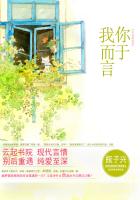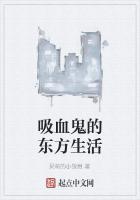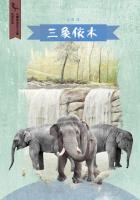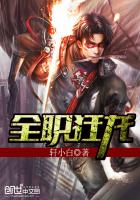Life at Bellevue began in the morning with a burst of joy。 One heard little feet rushing along the corridors—children's voices singing together。When I descended, I found them in the dancing?room, and when they saw me they shouted“Good morning, Isadora。”Who could be morose in such an atmosphere?And though often, when I looked among them for two little missing faces, I went to my room to weep alone, still I found the courage each day to teach them, and the lovely grace of their dancing encouraged me to live。
In A。 D。100 there stood on one of the hills of Rome a school, known as the“Seminary of Dancing Priests of Rome。”The pupils of this school were chosen from the most aristocratic families, and not only that, but they had to possess an ancestral lineage daring back many hundreds of years, during which no stain had fallen upon it。Although they were taught all the arts and philosophies, dancing was their chief expression。They would dance in the theatre at the four seasons of the year, spring, summer, autumn, and winter。On these occasions they descended from their hill to Rome, where they took part in certain ceremonies and danced before the people for the purifcation of those who beheld them。These boys danced with such happy ardour and purity that their dance infuenced and elevatedtheir audience as medicine for sick souls。It was of such expression that I dreamed when I first formed my school, and I believed that Bellevue, standing on an Acropolis near Paris, might have the same significance to that city and its artists as the School of the Dancing Priests of Rome。
A band of artists came every week to Bellevue with their sketch?books, for the school was already proving to be a source of inspiration from which hundreds of sketches and many models of dancing figures, which exist today, were inspired。I dreamed that through this school there might come a new ideal for the relation between the artist and his model, and through the influence of the forms of my pupils moving to the music of Beethoven and César Franck, dancing the Chorus of the Greek Tragedy, or reciting Shakespeare, the model would no longer be that poor dumb creature one sees sitting in the studios of artist, but a living, moving ideal of the highest expression of life。
To further these hopes, L。 now visualised the possibility of building the theatre, which had been so tragically interrupted, on the hill of Bellevue, of making it a festival theatre to which the people of Paris would come on great fête days, and of endowing it with a symphonic orchestra。
Once more he called to him the architect, Louis Sue, and the models of the theatre, which had been abandoned, were again set up in the library, and the foundations were already marked out。 In this theatre I hoped to realise my dream of again bringing together the arts of music, tragedy, and dancing, in their purest forms。Here Mounet?Sully, Eleanora Duse, or Suzanne Desprès would play CEdipus, or Antigone, or Electra, while the pupils of my school would dance the chorus。Here, too, I hoped to celebrate the centenary of Beethoven with the Ninth Symphony and a thousand of my pupils。I pictured a day when the children would wend their way down the hill like Pan Athene, would embark on the river and, landing at the Invalides, continue their sacred procession to the Panthéon, and there celebrate the memory of some great statesman or hero。
I spent hours every day teaching my pupils, and when I was too tired to stand, I reclined on a couch and taught them by the movements of my hands and arms。 My powers of teaching seemed indeed to border on the marvellous。I had only to hold out my hands towards the children and they danced。It was not even as though I taught them to dance, but rather as if I opened a way by which the Spirit of the Dance fowed over them。
We were planning a performance of the Bacchae of Euripides, and my brother Augustin, who was to play the part of Dionysus, and who knew it by heart, would read it to us every night, or one of Shakespeare's plays, or Byron's“Manfred”;and D'Annunzio, who was enthusiastic about the school, often lunched or dined with us。
The small group of the pupils from the first school, who were now tall young girls, aided me in teaching the little ones, and it was a very touching sight for me to see the great change that had taken place in them, and with what confidence and knowledge they passed on my teachings。
But in the month of July of that year 1914 a strange oppression came over the earth。 I felt it, and the children felt it too。When we were on the terrace overlooking the city of Paris, the children were often silent and subdued。Huge black clouds gathered in the sky。An uncanny pause seemed to hang over the land。I sensed it, and it seemed to me that the movements of the babe I bore were weaker, not so decided as those of the others had been。
I suppose I was also very tired from the effort I had made to change grief and mourning into new life, and as the month of July advanced L。 suggested that he should send the school to England to spend the vacation at his house in Devonshire。So one morning they all trooped in, two by two, to say goodbye to me。They were to spend August by the sea and return in September。When they had all gone, the house seemed strangely empty, and, in spite of all my struggles, I fell a prey to a deep depression。I was very tired, and would sit for long hours on the terrace overlooking Paris, and it seemed to me more and more that some danger loomed from the East。
Then one morning came the sinister news of the assassination of Calmette, which threw the whole of Paris into a state of disquietude and apprehension。 It was a tragic event—the forerunner of the greater tragedy。Calmette had always been a good friend to my Art and my school, and I was much shocked and saddened by this news。
I felt restless and full of fears。 Now that the children were gone, Bellevue seemed so vast and quiet, and the greatdancing?room seemed so melancholy。I tried to calm my fears with the thought that the baby would soon be born, the children would return and Bellevue be again a centre of life and joy, but the hours dragged along, until one morning my friend Dr。Bosson, who was our guest at the time, came in with a very white face, holding a newspaper in his hand, where I read the headlines telling of the assassination of the Archduke, then came rumours, and, shortly after, the certainty of war。How true it is that coming events cast their shadows before them。Now I knew that the dark shadow I had felt hanging over Bellevue for the last month was the war。While I had been planning the renaissance of the Art of the theatre, and festivals of great human joy and exaltation, other forces had been planning war, death, and disaster, and, alas!what was my small force against the onrush of all this?
It was on the frst of August that I felt the frst pangs of childbirth。 Beneath my windows they were calling the news of the mobilisation。It was a hot day, and the windows were open。My cries, my suferings, my agony were accompanied by the rolling of the drums and the voice of the crier。
My friend Mary brought a cradle into the room, all hung with white muslin。 I kept my eyes on the cradle。I was convinced that Deirdre or Patrick was coming again to me。The drums continued。Mobilisation—war—war。“Is there war?”I wondered。But my child must be born, and it was so hard for him to come into the world。A strange doctor took the place of my friend Bosson, who had received his orders to join the army and had left。The doctor kept on saying,“Courage, madame。”Why say“Courage”to a poor creature torn with horrible pain?It would have been much better if he had said to me,“Forget that you are a woman;that you should bear pain nobly, and all that sort of rot;forget everything, scream, howl, yell—”or, better still, if he had been humane enough to give me some champagne。But this doctor had his system, which was to say,“Courage, madame。”The nurse was upset, and kept on saying,“Madame, c'est la guerre—c'est la guerre。”I thought,“My baby will be a boy, but he will be too young to go to the war。”
Finally I heard the baby's cry—he cried—he lived。 Great as had been my fear and horror in that terrible year, it was now all gone in one great shock of joy。Mourning and sorrow and tears, long waiting and pain, all made up for by one great moment of joy。Surely if there is a God he is a great stage director。All those long hours of mourning and fear were transformed to joy when they placed a beautiful boy baby in my arms。
But the drums continued,“Mobilisation—war—war。”
“Is there war?”I wondered。“What do I care?My baby is here, safe in my arms。 Now let them make war。What do I care?”
So egotistical is human joy。 Outside my window and door was a running to and fro and voices—the weeping of women—calls—discussions as to the mobilisation, but I held my child and dared, in the face of this general disaster, to feel gloriously happy, borne up to the Heavens with the transcendental joy of again holding my own child in my arms。
Evening came。 My room was flled with people rejoicing about the baby who lay on my arm。“Now you will be happy again,”they said。
Then, one by one, they left, and I was alone with the baby。 I whispered,“Who are you, Deirdre or Patrick?You have returned to me。”Suddenly the little creature stared at me and then gasped, as if choking for breath, and a long whistling sigh came from his icy lips。I called the nurse—she came, looked, and snatched the baby up in her arms in alarm, and from the other room I heard calls for oxygen—hot water—”
After an hour of anguished waiting, Augustin came in and said:
“Poor Isadora—your baby—has died—”
I believe that in that moment I reached the height of any sufering that can come to me on earth, for in that death it was as if the others died again—it was like a repetition of the frst agony—with something added。
My friend Mary came, and, weeping, took the cradle away。 In the next room I heard hammer?taps closing the little box which was my poor baby’s only cradle。These hammer?taps seemed to strike on my heart the last notes of utter despair。As I lay there, torn and helpless, a triple fountain of tears, milk, and blood fowed from me。
A friend came to see me and said:“What is your personalsorrow?Already the war is claiming hundreds—already the wounded and dying are being sent back from the Front。”So it seemed only natural to me to give Bellevue for a hospital。
For in those days of the war everyone felt the same enthusiasm。 That marvellous message of defiance, the wonderful enthusiasm that was to lead to miles of devastated country and graveyards, who can say whether it was right or wrong?Certainly at the present moment it seems to have been rather useless, but how can we judge?And Romain Rolland sitting in Switzerland, above it all, calling upon his pale and thoughtful head the curses of some and the blessings of others。
At any rate, from that moment, we were all flame and fire, and even the artists said,“What is Art?The boys are giving their lives, the soldiers are giving their lives—what is Art?”And if I had had any intelligent sense at that time, I should have said,“Art is greater than life,”and would have remained in my studio creating Art。 But I went with the rest of the world and said,“Take all these beds, take this house that was made for Art, and make a hospital to nurse the wounded。”
One day two stretcher?bearers came to my room and asked me if I would like to see my hospital。As I could not walk, they carried me on a stretcher from room to room。In each room I saw that my bas?reliefs of bacchantes and dancing fauns and nymphs and satyrs had been taken down from the walls, as well as all my draperies and curtains, and in the place of the bas?reliefs were cheap effigies ofa black Christ on a golden cross, supplied by one of the Catholic stores which turned out thousands of these during the war。I thought of the poor wounded soldiers on their frst awakening, and how much more cheerful for them to have seen the rooms as they were before。Why should they see this poor, black Christ stretched upon a golden cross?What a melancholy sight for them。
In my wonderful dancing?room the blue curtains had dis?appeared and there were endless rows of cots waiting for the sufering men。My library, where poets had stood on the shelves for the initiated, was now turned into an operating theatre, waiting for the martyrs。In my then weakened state all these sights afected me deeply。I felt that Dionysus had been completely defeated。This was the reign of Christ after the Crucifixion。
Shortly after this, one day I heard the frst heavy steps of the stretcher?bearers, bringing in the wounded。
Bellevue!My Acropolis, that was to have been a fountain of inspiration, an academy for the higher life inspired by philosophy, poetry, and great music。 From that day Art and Harmony vanished, and within your walls were heard my first cries—the cries of the wounded mother and of the baby who had been frightened from this world by the war drum。My Temple of Art was turned into a Calvary of Martyrdom and, in the end, into a charnel?house of bloody wounds and death。Where I had thought of strains of heavenly music, there were only raucous cries of pain。
Bernard Shaw says that as long as men torture and slayanimals and eat their flesh we shall have war。 I think all sane, thinking people must be of his opinion。The children of my school were all vegetarians, and grew strong and beautiful on a vegetable and fruit diet。Sometimes during the war when I heard the cries of the wounded I thought of the cries of the animals in the slaughter?house, and I felt that, as we torture these poor defenceless creatures, so the gods torture us。Who loves this horrible thing called war?Probably the meat?eaters, having killed, feel the need to kill—kill birds, animals—the tender stricken deer—hunt foxes。
The butcher with his bloody apron incites bloodshed, murder。 Why not?From cutting the throat of a young calf to cutting the throat of our brothers and sisters is but a step。While we are ourselves the living graves of murdered animals, how can we expect any ideal conditions on the earth?
When I could be moved, Mary and I left Bellevue for the sea。 We went through the war zone and, when I gave my name, were treated with the greatest courtesy。When a sentry on duty said,“It is Isadora, let her pass,”I felt it was the greatest honour I had ever received。
We went to Deauville and found rooms at the H?tel Normandie。I was very tired and ill, and glad to fnd this haven of rest。But weeks passed and I remained in a discouraging state of languor, and so weak that I could hardly walk outon the beach to breathe the fresh breeze of the ocean。At last, feeling that I was really ill, I sent to the hospital for the doctor。
To my astonishment he did not come, but sent back an evasive answer, and, having no one to attend me, I remained at the H?tel Normandie too ill to make any plans for my future。
At that time the hotel was a refuge for many distinguished Parisians。 Next to our rooms were those of the Comtesse de la Beraidière, who had as her guest the poet Comte Robert de Montesquieu, and after dinner we often heard his light falsetto voice reciting his poems, and, amidst the constant news of war and carnage that reached us, it was wonderful to listen to him proclaiming with ecstasy the power of Beauty。
Sacha Guitry was also a guest at the Normandie, and every evening in the hall he entertained a delighted audience with his irrepressible fund of stories and anecdotes。
Only as every courier from the Front reached us with news of the world tragedy, there was a sinister hour of realisation。
But this life soon became distasteful to me, and, as I was too ill to travel, I rented a furnished villa。 This villa was called“Black and White,”and in it everything, rugs, curtains, furniture, was black and white。When I took it I thought it very chic, and did not realise until I tried to live in it how depressing it could be。
So here I was, transported from Bellevue, with all its hope of my School, Art, Future New Life, to this little black and white house by the sea, alone, sick, desolate。 But probably the worst of all was the illness。I could hardly fnd strength for a short walk on the beach。Autumn came, with September storms。L。wrote me that they had taken my school to New York, hoping to find there a refuge during the war。
One day, feeling more than usually desolate, I went to the hospital to seek the doctor who had refused to come to me。 I found a short man with a black beard and was it my imagination, or did he turn as if to fy when he saw me?I approached and said:
“Why, doctor, what have you against me that you will not come to see me when I ask you?Don't you know that I am really ill and need you?”
He stammered some excuses, still with that haunted look, and promised to come the next day。
The next morning, the autumn storms began。 The sea was high, the rain poured down。the doctor came to the villa“Black and White。”
I was sitting there vainly trying to light a wood fire, but the chimney smoked badly。 The doctor felt my pulse and asked me the usual questions。I told him of my sorrow at Bellevue—of the baby who would not live。He continued to stare at me in the same hallucinated manner。
Suddenly he clutched me in his arms and covered me with caresses。
“You are not ill,”he exclaimed,“only your soul is ill—ill for love。 The only thing that can cure you is Love, Love, and more Love。”
Alone, weary, and sorrowful, I could only feel very grateful for this passionate and spontaneous burst of afection。 I looked into the eyes of this strange doctor and found love, and I returned it with all the dolorous force of my wounded soul and body。
Each day, after his work at the hospital, he came to my villa。 He told me of the terrible experiences of the day, of the sufferings of the wounded, the often hopeless operations—all the horrors of the horrible war。
Sometimes I went with him on night duty, when the vast hospital at the Casino slept and only the central night?light burned。Here and there a wakeful martyr turned with weary sighs and groans, and he went from one to another, giving a word of comfort or something to drink, or a God?given anaesthetic。
And after these hard days and pitiful nights this strange man had need of love and passion, at the same time pathetic and ferocious, and from these fery embraces and hours of maddening pleasure my body emerged healed and well, so that now I could again walk beside the sea。
One night I asked this strange doctor why he had refused to come to me at my first summons。 He did not answer my question, and a look of such pain and tragedy crept into his eyes that I was afraid to pursue the subject。But my curiosity grew。There was some mystery。I felt that my pastwas in some way connected with his refusal to answer my question。
On the frst of November, the Day of the Dead, I was standing at the window of the villa when I noticed that the garden plot, laid out in black and white stones, had exactly the aspect of two graves。 This appearance of the garden became a sort of hallucination, until I could not look at it without shuddering。Indeed, I seemed caught in a net of suffering and death, alone all day in the villa or wandering on the now cold and desolate sands。Train after train arrived at Deauville with its tragic freight of wounded or dying。The once fashionable Casino, which, the season before, had resounded with jazz band and laughter, was transformed into a huge caravan?sary of sufering。I became more and more a prey to melancholy, and the passion of André became each night more sombre in its fantastic intensity。Often when I encountered that desperate regard of his, as of a man haunted by a terrible memory, he would respond to my questions,“When you know all, it will mean our separation。You must not ask me。”
I awoke one night to fnd him bending over me, watching me in my sleep。 The despair in his eyes was too terrible for me to sufer any longer。
“Tell me what it is,”I begged。“I can no longer bear this sinister mystery。”
He moved a few steps from me and stood with bent head gazing at me—a short, square man, with a black beard。
“Don't you know me?”he asked。
I looked。 The mist cleared away。I gave a cry。I remembered。That terrible day。The doctor who came to me to bid me hope。He who had tried to save the children。
“Now you know,”he said,“what I suffer。 When you sleep you look so like your little girl as she lay there。And I tried so hard to save her—for hours from my mouth I endeavoured to give her my breath—my life—through her poor little mouth—to give her my life——”
His words caused me such terrible pain that I cried helplessly the rest of the night, and his unhappiness seemed to equal my own。
From that night I realised that I loved this man with a passion I had myself ignored, but as our love and desire for one another increased, so also increased his halluncination, until again one night I awoke and found those terrible eyes of sorrow gazing at me, and I knew that the obsession that possessed him might lead us both to insanity。
The next day I walked along the beach, farther and farther, with a terrible desire never to return either to the melancholy villa“Black and White”or to the death?like love that encompassed me there。I walked so far that it became dusk, and then quite dark, before I realised that I must return。The tide was coming in fast, and often I walked through the incoming waves。Although it was very cold, I felt a great desire to face them and walk straight into the sea, to end for ever the intolerable grief from which I could fnd no relief either in Art, in the rebirth ofa child, or in love。In every efort to escape, I found only destruction, agony, death。
Half way to the villa, André met me。He had become very anxious, for, fnding my hat, which I had dropped in my distraction on the beach, he had also thought that I had sought to end my pain in the waves。When, after walking for miles, he saw me approaching alive, he cried like a child。We walked back to the villa and tried to comfort one another, but we realised that our separation was absolutely necessary if we wished to retain our sanity, for our love, with its terrible obsession, could only lead to death or a mad?house。
And another thing happened to make my desolation even more intense。 I had sent to Bellevue for a trunk of warm clothes。One day a trunk arrived at the villa, but the senders had made a mistake and, when I opened it, I found it contained the clothes of Deirdre and Patrick。When I saw them there, before my eyes once more—the little dresses they had last worn—the coats and shoes and little caps—I heard again that cry which I had heard when I saw them lying dead—a strange, long, wailing cry, which I did not recognise as my own voice—but as if some cruelly hurt animal called its death?cry from my throat。
André found me there, unconscious, when he returned—lying over the open trunk with all the little garments clutched in my arms。He carried me into the next room and took the trunk away, and I never saw it again。















